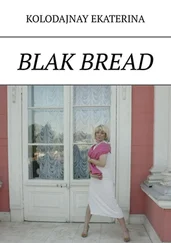“We’ll come back for anything he’s forgotten,” said Mrs. Manubens. “Nothing at all for you to worry about.”
As sullen as ever, Dad Quirze silently paced from one end to the other of the gallery. Now and then he looked me up and down, because you couldn’t exactly say he looked at me, he ran his eyes over me, registering my presence in a kind of furtive glance, as if he was afraid of being trapped, and he said nothing. Then Mr. Manubens and Dad Quirze started to go downstairs ahead of the others, talking about the farm, the animals, the harvests, the market… Mrs. Manubens walked next to Aunt Ció with the bundle of clothes and my aunt told her what I liked to eat and what I hated, like beans, fresh cheese and the apron of cream on milk that’s just been milked, but she assured her I would eat anything, that I had a good appetite and was very responsive. Before going downstairs with Cry-Baby, I went over to Grandmother, hugged her and kissed her on the cheek. She smiled and whispered: “The four bigwigs…”
I didn’t know what to say and she pushed away me with her hand: “Off you go now, don’t keep these people waiting. You’ve got to fly the flag, those people don’t wait even for the king.”
When the car, driven extremely cautiously by Mr. Manubens, juddered off, I looked through the window at the group on the edge of the track, my aunt and uncle and cousins all together, looking at us with that same expression we’d adopt on at school when the photographer came to take a class photo, with the teacher amidst the toddlers, eyes open wide and faces all expectant, waiting for the gadget to click so we could go back to our normal gestures, wanting all that to be immortalized in someone’s memory, in my memory, the memory that freezes us in a few seconds at an exact given time, on a byway of existence, in an ordinary context that only a photo or memory can transform into something exceptional.
I lived those first days in Mr. and Mrs. Manubens’ bungalow on the outskirts of Igualada that locals dubbed a “mansion,” by the road heading to Santa Margarida de Montbui, in a passive state, as if they had anaesthetized me.
I tried not to think, feel or be surprised by anything. Even so, I took note of every detail, I registered every change, observed each new feature, storing them in my mind so I would behave in an appropriate fashion. The bungalow had one maid who lived in and another who came on every working day to help her, and a chauffeur who acted as gardener and general handyman. Mrs. Manubens rarely left home, to be driven to mass, in the Holy Christ’s church at the entrance to town, or buy the odd thing from the shops on the main street, never in the market; Mr. Manubens spent the entire day out, in the new factory or visiting his farms.
I was allotted a clean and spacious bedroom, some way from the main sitting room, with a balcony overlooking the garden and an adjacent lavatory with a bath, and it all seemed luxurious and too big for just me. Later on I heard comments on the fashion among the district’s nouveaux riches , also called the arrivistes —a rich man wasn’t the same as an arriviste or a plutocrat that was the highest level of arriviste or nouveau riche with a touch of the black-marketeer — who liked to compare the quantity and quality of the bathrooms they installed in their newly built bungalows, mansions or flats — which they were beginning to call their “residences”—as one indicator of their wealth and standard of living: social success depended on their bathrooms and the fixtures they contained, porcelain bidets, Venetian mirrors, small cabinets with medicine chests and expensive perfumes, baths with a range of taps made of chrome, stainless steel, gold… The first thing farmers of the locality did when luck began to shine on them was to multiply the number of their bathrooms and buy large Seat cars. Mr. and Mrs. Manubens sometimes commented on such behaviour over lunch and had quite a laugh, because they considered themselves to be a longstanding wealthy family and were amused by a competitive hygiene they viewed with highly patronizing disdain. They, or so they claimed, never talked about bathrooms or politics. To talk about such things was to show a lack of breeding, or so they said.
I liked the dry climate and the surrounding wild, but attractive, landscape. The winter sun was warmer and shone for longer than on the plain. The light was more diaphanous. People, when I got to know a few, were more cheerful and gregarious and spoke with a slight emphasis on their vowels that showed how close we were to the territory of Lleida.
The school was in the Escolapian monastery, the same order that owned the church of Holy Christ of which my sponsor was a parishioner, a huge, ramshackle building on the road out of the city, at once dingy and disconcerting, with neo-Gothic pretentions local architects had invented to ennoble the sudden wealth of local landowners. They made a subtle distinction between landowners and small farmers in the conversations that Mr. and Mrs. Manubens allowed me to be present at, the small farmers were a sub-species of nouveaux riches , however much they might have become agricultural entrepreneurs, and the landowners, sometimes described as property owners, who were property owners in their own right — conventions promoted by the religious orders that had spread across the country to reinforce the faith and influence society, starting at the top, with future leaders, in the belief that those on high, the upper class and upper middle class, would project their behaviour and faith over ordinary people.
My classmates accepted me straightforwardly. The Escolapian in charge of the year, the one they called Father Prefect, let it be known, without any prior warning to me, that I was Mr. and Mrs. Manubens’ nephew, and that my father had been killed in the war. He didn’t mention my mother and nobody asked me anything else about my past ever. Most of the pupils were boys from well-off or well-to-do families — that were sometimes dubbed as the comfortably off or moneyed — I never did find out whether the second was a riff on the first: other subtle distinctions existed between a well-off or well-to-do household, a good household and one of high standing, the former were merely acceptable, met the minimum standard to warrant rubbing shoulders, a good household was a notch higher in the pecking order as a result of wealth or tradition, was one that deserved respect and could be treated on equal terms, and a family of high standing was at the pinnacle of the social ladder, the three or four families that weren’t simply good but shared out the chief responsibilities and sinecures in the municipality, be it the Town Hall, the Patronage of the Holy Christ church, the ownership of the small provincial bank or the couple of industries that had been re-established after the war. They were the people who moulded the city’s identity and shaped its future, who had splendid links with the powers-that-be in Barcelona, and, above all, in Madrid; some classmates came from good households but almost none from high-standing families because as soon as the latter — the boys and exceptionally a girl — were ready for secondary school at the age of ten or eleven, they were sent to board with the Escolapians in Sarrià or the Jesuits, some even boarded in La Molina or in Puigcerdà so they could spend their weekends skiing, hoity-toity ladies at their soirées would say they practised white sports to friends hanging on their arms. There were also scholarship holders from small farming communities, but they were older and acted as monitors or ayos —everything was in Spanish and we called them iaios —who watched over us even in the lavatories and timed how long we stayed in a stall, if we dallied, they rudely rapped on the door to warn us we’d been inside too long, because it wasn’t good for us to spend that amount of time on our bodily needs, unless we were ill, and if that was the case, they informed us with a formula the prefect had taught them, it behoved us to pay the doctor a visit.
Читать дальше












